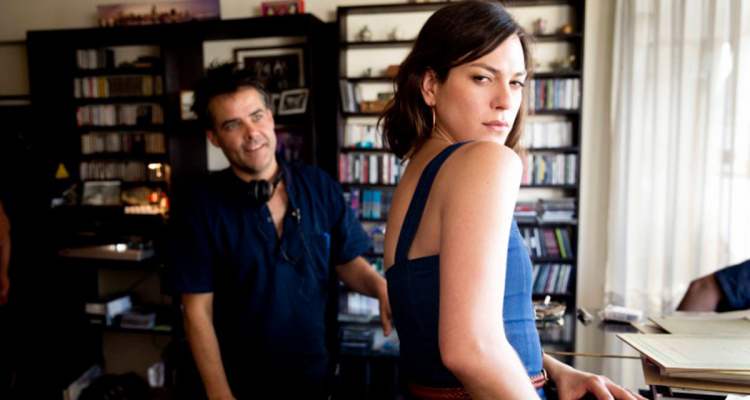In 2017, filmmaker Sebastián Lelio released the Oscar-winning film, “A Fantastic Woman.” The film is especially notable for starring a trans woman in the lead role, telling the story of how a trans person deals with the prejudice and rejection coming from everywhere. And with the recent controversy surrounding Scarlett Johansson’s newest film, “Rub & Tug,” THR decided to ask the filmmaker what he thinks about cisgender actors taking on trans roles.
“It’s true [that] cultural representation has been scarce so far. And it’s also true that the gesture of casting a cisgender actor to play a transgender role can be aesthetically or ethically debatable — but it should never be prohibited,” says Lelio.
READ MORE: Sebastián Lelio’s Mesmerizing & Mysterious ‘A Fantastic Woman’ [Berlin Review]
Johansson became the source of controversy when it was announced that she would play the role of Tex Gill, a trans man who ran a series of illicit massage parlors and a steroids ring in the 1970s. Since the announcement, many trans actors have come forward to voice their displeasure with the actress taking on a role like that. However, Lelio doesn’t agree with the controversy, and it all comes down to artistic freedom.
He continues, “When I decided to cast Daniela Vega to play Marina in ‘A Fantastic Woman,’ it was an act of artistic freedom, not political correctness. I wasn’t telling the world that transgender roles should be played by transgender actors. I was only doing what I felt was right for my film.” Vega would go on to win awards for her role in the film.
READ MORE: ‘A Fantastic Woman’s’ Daniela Vega Is Having Her ‘Best Moment’
“If I said transgender roles should only be played by transgender actors, I would be implying that Daniela Vega shouldn’t play a cisgender role. And I believe she has every right to play a man or a woman,” he added.
The filmmaker concludes by saying that he sympathizes with the plight facing transgender folks, but still can’t ever tell another artist how to do their job. “When artistic freedom is threatened, that’s a sign that society is becoming authoritarian, or moving towards behaviors and procedures that start to smell like fascism,” Lelio says.

